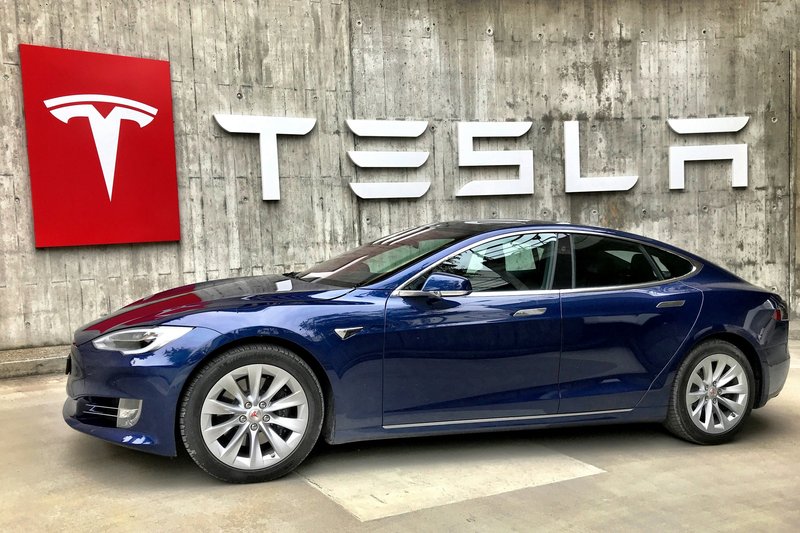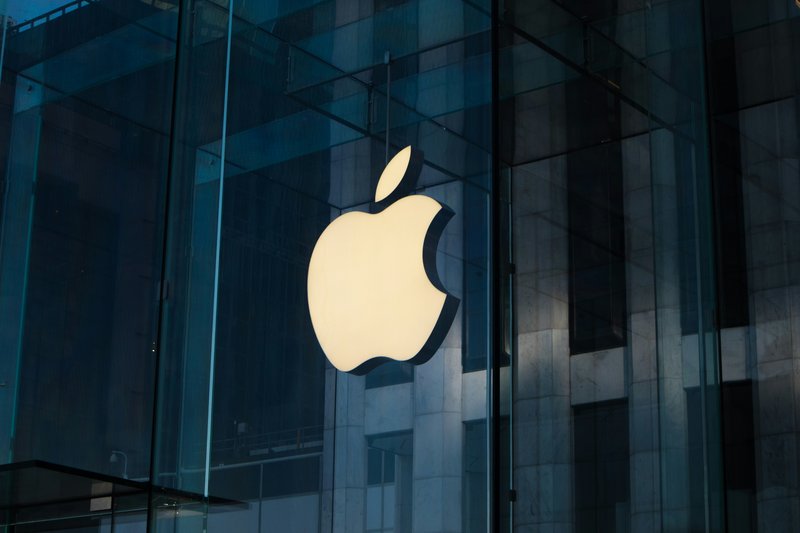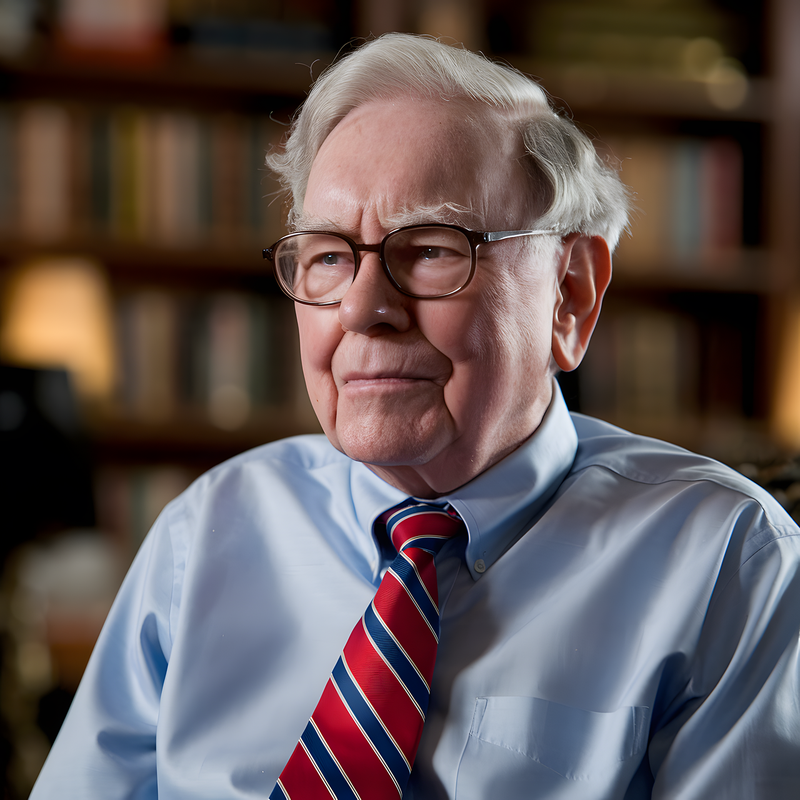
How to Attract Top Marketing Talent For Your Business
Hiring exceptional marketers is more difficult than ever. This guide shows CEOs and HR leaders exactly how to attract the right talent while strengthening your brand’s marketing engine.
08 May 2025
Meet the top 10 most influential CEOs shaping the future of business and the key lessons you can learn from their leadership.
Blog
Being a CEO means constantly learning from the best. In today’s fast-paced global market, some leaders stand out for transforming industries and inspiring others to follow. Here we look at ten of the world’s most influential CEOs across tech, finance, and beyond – and, more importantly, how you can mirror their success. From bold innovation to compassionate leadership, each profile distills key lessons in strategy, innovation, leadership and resilience that you can apply in your own organisation. Let’s dive in and see what makes these CEOs tick, and how you can put their strategies to work in your business.

Love him or loathe him, Elon Musk, the force behind Tesla, SpaceX, and more, is renowned for thinking big and taking risks. He has repeatedly ventured into industries where failure seemed likely – from electric cars to private space travel – and turned skepticism into success. Musk’s vision for a multi-planetary future and sustainable energy has revolutionised automotive and aerospace sectors. His hands-on approach is equally legendary.
During Tesla’s “production hell” period, he famously slept on the factory floor to personally confront challenges and motivate his team. This kind of commitment, while extreme, exemplifies his lead-by-example mentality. Musk’s companies also embrace failure as a learning process. Whether it’s a rocket exploding or a product delay, he often says that if you’re not failing, you’re not innovating enough. By relentlessly pursuing ambitious goals – like landing reusable rockets or making electric vehicles mainstream – Musk shows that audacious vision coupled with hard work can disrupt entire industries.
Key Lessons from Elon Musk:

Tim Cook took the helm at Apple in 2011, succeeding the iconic Steve Jobs. Rather than mimic Jobs’s style, Cook forged his own path by playing to his strengths – operational excellence, quiet leadership, and a strong ethical compass. Under Cook, Apple became the first company to reach a $3 trillion market cap, proving that steady refinement and smart management can yield remarkable results.
Cook is known for a democratic, consensus-building leadership style that encourages collaboration across Apple’s talent. He focused on streamlining Apple’s supply chain (earning a reputation as a logistics genius) and expanding products incrementally (Apple Watch, AirPods, etc.), rather than dramatic “one more thing” reveals. Equally important, Cook has infused Apple with his values – prioritising user privacy, environmentally sustainable practices, and inclusivity in the workplace. By fostering cooperation and trusting his team, he maintains Apple’s innovation engine while avoiding the chaos often associated with big personalities. Tim Cook shows that you don’t have to be flashy to be influential; consistent vision, humility, and focus on core competencies can sustain success in the long run.
Key Lessons from Tim Cook:

Satya Nadella, CEO of Microsoft since 2014, is credited with one of the most celebrated corporate turnarounds of recent times. He took a stagnant tech giant and reenergised it by transforming the company culture. Nadella famously shifted Microsoft from a know-it-all culture to a “learn-it-all” culture. Embracing a growth mindset, he encouraged employees to collaborate, experiment, and keep learning – rather than fear failure or hoard knowledge. This cultural reboot was pivotal as Microsoft moved into cloud computing, AI and other new frontiers.
Under Nadella’s leadership, Microsoft’s market value tripled to over $1 trillion, partly because he united the company around a clear vision (cloud-first, mobile-first) and made it okay to challenge old ways. Nadella’s leadership style also stresses empathy – shaped by personal experiences, he promotes understanding customers’ and employees’ needs deeply. He often reminds the team, “Our industry does not respect tradition – it only respects innovation”, urging them to keep reinventing. By breaking internal silos and fostering an agile, learning-focused environment, Nadella demonstrated that even the largest organisations can innovate from within when people are empowered and aligned with a common purpose.
Key Lessons from Satya Nadella:

Sundar Pichai, CEO of Google (and parent Alphabet), exemplifies the power of humility and focus on leadership. Rising from a middle-class upbringing in India to leading one of the world’s most influential tech companies, Pichai remains notably down-to-earth. He’s described as “humble, gracious, and unassuming – the complete opposite of a stereotypical, high-powered CEO”.
But under that calm demeanour is a sharp strategic mind. Pichai championed products like the Chrome browser and Android OS, which now serve billions. His philosophy revolves around keeping the user first and simplifying complexity. At Google, he steers innovation in AI, search, and mobile while handling controversies (like data privacy and antitrust issues) with a steady hand and willingness to listen. Pichai also learned the importance of decisiveness – one of his mentors taught him that a leader must sometimes “break ties” in consensus to keep things moving. He fosters an inclusive environment where even quiet voices are heard in meetings, to tap everyone’s ideas. By empowering others and staying approachable, Pichai has kept Google at the forefront of innovation without the drama. His tenure illustrates that kindness and clarity can co-exist with cutting-edge innovation.
Key Lessons from Sundar Pichai:

Mark Zuckerberg, co-founder and CEO of Facebook (now Meta Platforms), has had a rollercoaster career marked by rapid growth, criticism, and reinvention. Launching Facebook from a dorm room at 19, Zuckerberg built one of the largest social networks in history – a company that connected billions and spawned entirely new paradigms of communication. A defining trait of his leadership is willingness to pivot and disrupt his own company. When mobile usage surged, he shifted Facebook’s focus to mobile-first. Sensing competition, he boldly acquired Instagram and WhatsApp. In 2021, he even rebranded the entire company as “Meta” to bet on the metaverse as the next chapter. These moves illustrate his belief that “the biggest risk is not taking any risk” – a famous Zuckerberg quote reminding leaders that playing it too safe is a recipe for failure.
Zuckerberg also weathered intense public scrutiny (privacy scandals, congressional hearings) and responded by investing heavily in security and changing policies. While sometimes controversial, he showed resilience by confronting problems and trying new approaches (for example, pivoting to privacy-focused messaging and communities). His journey underscores the importance of adapting to change, learning from mistakes, and constantly innovating. Even as a market leader, Zuckerberg behaves like a startup founder who’s never done – an attitude any business can emulate to avoid complacency.
Key Lessons from Mark Zuckerberg:

Warren Buffett, CEO of Berkshire Hathaway, may not be a tech mogul, but his influence in the business world is enormous. Often called the “Oracle of Omaha,” Buffett has achieved legendary success through long-term, principled leadership. He preaches patience and discipline in a market obsessed with quick wins. “Successful investing takes time, discipline, and patience. No matter how great the talent or effort, some things just take time,” Buffett says – a philosophy he’s proven by decades of steady returns. Under his guidance, Berkshire Hathaway has grown from a failing textile mill into a $700+ billion conglomerate, largely by thinking in years and decades, not days or quarters.
Buffett is also a paragon of integrity and simplicity. He famously still lives in the same Omaha house he bought in 1958 and values honesty above all in business. When hiring, Buffett looks for intelligence, energy, and integrity – “and if they don’t have the last one, the first two will kill you,” he quips, emphasising that trust is non-negotiable. He admits his mistakes openly in annual letters and credits much of his wisdom to learning from mentors and business partners. In fact, Buffett once noted, “Much of what you become in life depends on whom you choose to admire and copy.” For a CEO reader, that’s a reminder to seek out great role models (like these CEOs!) and emulate their best traits. Buffett’s enduring success shows that ethical, long-range thinking and continuous learning can be a winning formula in any industry.
Key Lessons from Warren Buffett:

Jeff Bezos, the founder and former CEO of Amazon, turned a humble online bookstore into a global empire spanning e-commerce, cloud computing, media, and more. How? Largely through an unyielding customer obsession and a “Day 1” mindset. Bezos insisted that Amazon should always act like a startup (as if it’s “Day 1”), hungry and responsive, no matter how big it gets. He ingrained the principle that the customer is the most important person in the room – quite literally symbolised by an empty chair he mandated be kept in meetings to represent the customer’s presence. This practice reminded everyone at the table to frame decisions around what customers want, not internal agendas. Bezos coupled this customer-centric ethos with relentless experimentation.
From Amazon Web Services (which began as an internal experiment) to one-day delivery to the Alexa voice assistant, Bezos pushed teams to innovate and “experiment patiently, accept failures, [and] plant seeds” in pursuit of breakthrough ideas. He encouraged quick decision-making and calculated risk-taking, famously saying that if you double the number of experiments, you double your likelihood of innovation. His leadership style could be demanding – Amazon’s high standards and data-driven culture are well known – but it’s hard to argue with the results. By the time he stepped down as CEO, Amazon had become one of the most valuable companies in the world and a byword for customer service excellence. Bezos teaches us that obsessive focus on your customers, combined with fearless innovation and high standards, can create extraordinary success.
Key Lessons from Jeff Bezos:

Mary Barra, CEO of General Motors, is a trailblazer in the auto industry – the first woman to lead a Big Three automaker – and is steering GM through a period of dramatic change. Barra took charge in 2014, amid a crisis (a massive safety recall), and demonstrated resilience and accountability from day one. She didn’t shy away from tough conversations and made it clear that transparency and safety would be top priorities in GM’s culture reboot. Once the crisis was managed, Barra set her sights on the future: she outlined a bold vision of “zero crashes, zero emissions, zero congestion,” committing GM to electric vehicles (EVs) and autonomous driving technology as the way forward.
Under her leadership, GM has invested heavily in EV development (like the Chevrolet Bolt and upcoming all-electric models) and pledged to phase out gasoline cars by 2035. Barra’s strategy shows a keen willingness to disrupt old paradigms – essentially trying to reinvent a 100+ year-old company to compete with tech-savvy newcomers. Culturally, she’s also known for cutting bureaucracy. A famous example: Barra slashed GM’s complicated 10-page dress code down to just two words: “Dress appropriately.” It was a symbolic and practical move to empower employees and managers with common-sense responsibility. Some managers were uncomfortable with the newfound freedom, but Barra pushed them to solve issues on their own, which ultimately created a more accountable, empowered management layer. Mary Barra exemplifies transformational leadership – she respects GM’s heritage but isn’t afraid to make sweeping changes in pursuit of long-term innovation and a healthier company culture.
Key Lessons from Mary Barra:

Indra Nooyi, who served as CEO of PepsiCo from 2006 to 2018, is often celebrated for her balanced approach to leadership – blending strategic foresight with a personal, human touch. On the strategy front, Nooyi was an early proponent of shifting a sugary soda-and-snack business toward healthier options. She championed PepsiCo’s “Performance with Purpose” initiative, setting goals to improve nutrition in products, reduce environmental impact, and empower people, all while growing the company. This long-term vision led to acquisitions of healthy brands and reformulation of existing products to meet changing consumer tastes. The result? PepsiCo’s revenue grew more than 80% during her tenure, proving that doing what’s right for customers and society can also benefit shareholders.
Just as impressive are Nooyi’s people skills. She’s known for her empathy and unconventional efforts to boost employee morale. A famous example: when she became CEO, Nooyi wrote personal letters to the parents of her senior executives, thanking them for the “gift” of their children and acknowledging the contribution those executives were making. The gesture was deeply moving – many parents wrote back emotionally, and it forged a special bond (one executive joked that his mom now took Nooyi’s side in any work stress!). Nooyi believed in engaging employees “with their hearts as much as their minds” to build loyalty and passion. By appreciating her team in unique ways and communicating a clear, purpose-driven vision, she created a workforce that was both motivated and aligned with the company’s strategy. Indra Nooyi’s tenure teaches that combining smart business strategy with genuine care for people is a powerful formula for success.
Key Lessons from Indra Nooyi:

Jack Ma, the co-founder and long-time leader of Alibaba Group, is a classic rags-to-riches entrepreneurial icon – and his story carries valuable lessons in resilience and culture-building. Ma started Alibaba in 1999 from his apartment in Hangzhou, China, after numerous failures and rejections. (In fact, he loves to recount how he was the only one rejected out of 24 people who applied for a KFC job, and how he was rejected by Harvard 10 times!) Instead of letting those rejections discourage him, Jack Ma used them as motivation to keep improving and persevering. That tenacity paid off: today Alibaba is an e-commerce and tech titan often called the “Amazon of the East.”
One of Ma’s key philosophies is putting people first – specifically, he famously said: “Customers first, employees second, and shareholders third.”. This mantra, laid out in Alibaba’s IPO prospectus, guided a culture where delivering for customers and empowering employees take precedence, believing that satisfied customers and staff will ultimately drive the best returns for investors. Ma fostered an almost family-like vibe at Alibaba, investing in employee training, hosting mass weddings for staff, and celebrating shared values. He’s also a charismatic communicator, often using storytelling and even goofy antics (like dressing in costume and singing at company events) to inspire and unify his team. Importantly, Jack Ma had a grand mission – to champion small businesses and “make it easy to do business anywhere.” This mission kept Alibaba focused through ups and downs. Even after stepping down from formal roles, Ma’s influence persists in Alibaba’s culture of agility, customer-focus, and bold thinking. His journey from a poor English teacher to a billionaire tech mogul underscores that with determination, a clear mission, and a people-centric philosophy, you can overcome adversity and build something truly impactful.
Key Lessons from Jack Ma:
Each of these CEOs has charted a unique path, but common threads emerge: bold vision, relentless focus on people (customers, employees), adaptability, and the courage to innovate. As a business leader, you don’t need to run a tech giant or a multinational to apply these ideas. Start by adopting a mindset of continuous learning and improvement – stay curious, seek feedback, and never get too comfortable with the status quo. Encourage a culture in your organisation that reflects these principles: empower your talent, delight your customers, uphold integrity, and don’t fear calculated risks.
Most importantly, be proactive about executing these lessons. That might mean setting more ambitious goals, investing in employee development, or bringing in external expertise to jump-start new initiatives. In fact, one practical step is to leverage expert help to accelerate your progress. Many of the above leaders surround themselves with top talent and advisors – you can do the same even on a smaller scale. For instance, if you’re looking to drive marketing innovation or strategic growth but aren’t ready for a full-time CMO, consider engaging a Fractional CMO (Fractional Chief Marketing Officer). A fractional digital marketing expert can provide high-level strategy and execution on a part-time, flexible basis, helping you apply the kind of forward-thinking tactics these CEOs use, but tailored to your business.
The next step is yours. Take inspiration from the ten leaders above and start implementing these ideas today. Whether it’s fostering a new culture, launching an innovative project, or sharpening your customer focus – action is the bridge between insight and success. And if you want an extra edge, don’t hesitate to hire a Fractional Digital Marketing Expert to propel your strategy forward. It’s a cost-effective way to get world-class expertise on your team and ensure your marketing and vision are executed with the same excellence exemplified by the CEOs we’ve discussed. Remember, even the greatest business legends rely on strong teams and smart partners. Now is the time to invest in yours and lead your company to its next big victory.
Embrace these lessons, lead with purpose, and who knows – we might be reading about your leadership success in the future!
Here are some suggested articles that are closely related to this post

Hiring exceptional marketers is more difficult than ever. This guide shows CEOs and HR leaders exactly how to attract the right talent while strengthening your brand’s marketing engine.

Marketing is not a guessing game. With the right tools and mindset, CEOs can confidently measure ROI and ensure every marketing dollar works harder than ever.

Building an effective marketing team is crucial for business success, but what is the correct structure of that team based on the size of a business? From micro businesses with just a couple of employees to enterprises with hundreds and thousands,..

Your LinkedIn profile is more than a digital CV, it’s your marketing portfolio, elevator pitch, and first impression rolled into one. If you are serious about landing better roles or winning high-value clients, it needs to work as hard as you do.

Your marketing might be working, just not well enough. If your campaigns are flatlining or your audience is tuning out, it could be time for a rethink. Here are the five telltale signs your business needs a complete marketing overhaul.

A strong brand is more than a logo. It’s how people feel about your business. These ten proven strategies will help you boost brand awareness, build trust, and stand out in your market.